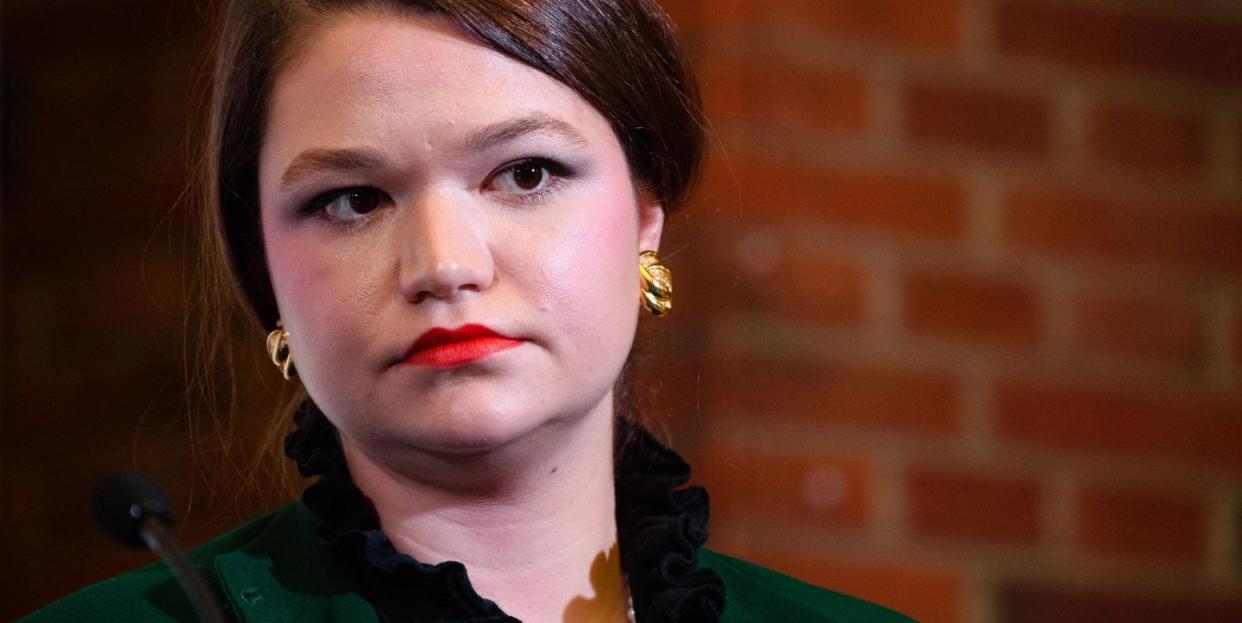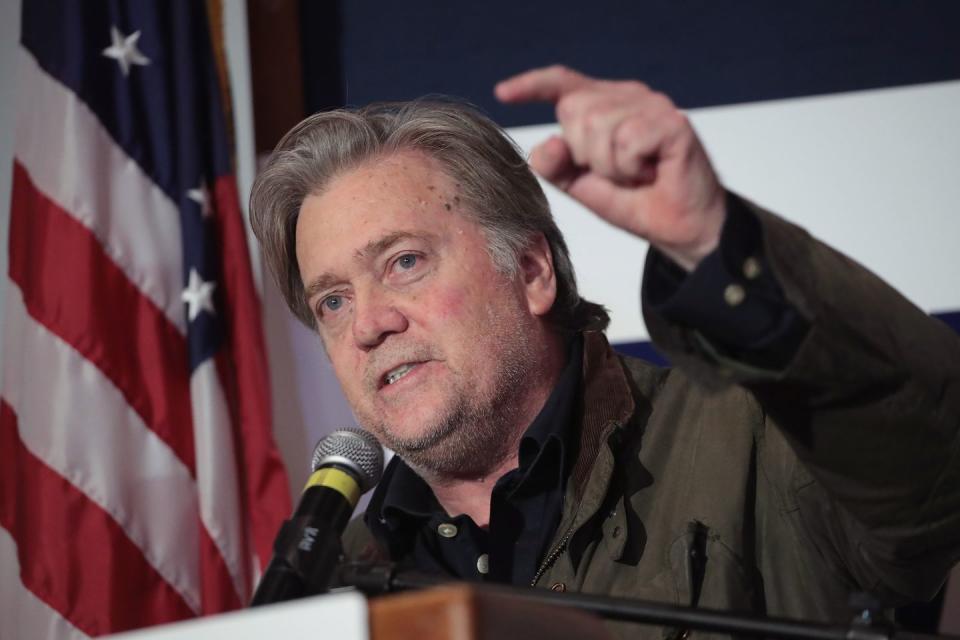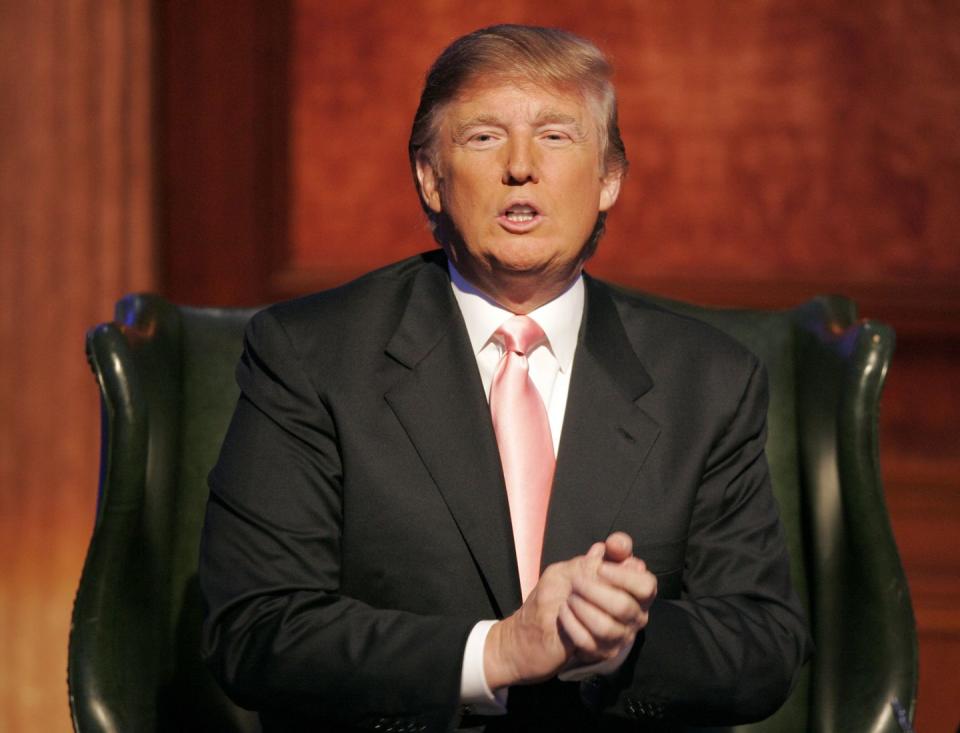Cambridge Analytica Whistleblower Brittany Kaiser on Working with Steve Bannon and the Company's Role in Brexit

When I first met Brittany Kaiser at a hotel in downtown Washington D.C. in April, she had recently left her job as the director of business development for Cambridge Analytica, the big data firm that had worked on the 2016 U.S. election and on Brexit. The Cambridge Analytica scandal, which began when a former employee stepped forward to reveal that the company had improperly accessed the private Facebook data of millions of users, was wide-ranging, technical, and complicated.
I was meeting Kaiser because my editor had secured an exclusive interview with her for the June issue of ELLE. She was then the subject of a lot of scrutiny among the British press, where journalists were aggressive reporting on Cambridge Analytica and Kaiser's role in the company’s business dealings abroad. She insisted that some of those stories were wrong, and she was adamant about something important: Cambridge Analytica had worked with Leave.EU, one of the campaigns aimed at convincing British voters to leave the European Union, despite her former boss Alexander Nix’s statement to British parliament insisting that wasn't the case. I talked with Kaiser for hours, and she was patient with me when I followed up with her probably a dozen times. I came away with an impression best captured by what her friend Paul Hilder, a progressive campaign organizer, told me about her: “I think she’s being careful, and I think she’s telling the truth.”
New revelations in The Guardian and The New Yorker this weekend make it clear that she was. The two publications are reporting of email evidence of coordination between Cambridge Analytica and Leave.EU as early as 2015. Steve Bannon, who worked for the company before becoming a senior advisor to President Donald Trump, was copied on those emails. The news is reviving calls in the United Kingdom for a wide-ranging investigation similar to the Mueller investigation in the United States, probing whether the efforts broke British laws about foreign interference in elections. The emails were made public by Emma Briant, a professor at the University of Essex. They were provided to her by Kaiser.

The news inspired me to go back to my interview with Kaiser from this spring. There was a lot she told me about 2015, the year Cambridge Analytica first started discussions of a partnership with Leave.EU, and about Arron Banks, the British businessman who bankrolled the effort. Earlier that year, Kaiser said, she met Steve Bannon for the first time at the Breitbart Embassy in Washington. Bannon, who was close to the Mercer family (which invested heavily in Cambridge Analytica), was the company's vice president.
“I didn’t even know what Breitbart was," Kaiser told me. "I hadn’t lived in the U.S. for my entire adult life, so a lot of U.S. news agencies, I just had no idea. And it’s just interesting, [Bannon] was laughing and showing me funny videos about Hillary, asking if I had watched Clinton Cash yet."
Kaiser, who would later vote for Bernie Sanders in the 2016 primary, tried to approach her meetings with Bannon with a sense of professional detachment. Yet it wasn't always easy. "At the end of one meeting, this was so shocking for me then, he asked Alexander [Nix} and I if we were going to stay for the party. I was like, what party? He said, 'Tonight we’re hosting the book signing for Ann Coulter’s ¡Adios, America!' I was like, 'Oh my God. Oh my God.'"
They didn't stay for the party, but Bannon gave them a copy of Coulter's book the next day. "I remember Alexander in his Britishness being like, 'Who is this woman, please?' And I was like, 'Alexander, I have never more disliked a female human being in my life'," Kaiser said.
Later that year, she said, she helped make Cambridge Analytica's first business pitch to Donald Trump's political campaign. "I went into Trump Tower, and went to the floor that was Campaign HQ, but when I got there, it was totally empty. Except for some Make America Great Again posters on the walls." The place looked familiar to her, though, so she asked Trump's then-campaign manager Corey Lewandowski how she recognized it. Lewandowski, she said, told her she must have seen The Apprentice. She remembered thinking at the time: "So I’m on the set of The Apprentice, pitching Corey Lewandowski what Cambridge Analytica can do for the Trump campaign?" But Trump's campaign was then riding high on free media and wasn't interested in paying for outside strategists. It wasn't until after he won the nomination that Cambridge Analytica got involved.

That same year, Kaiser said, the company was working to win contracts with one of the Brexit campaigns. Leave.EU, the campaign led by Banks, wasn't the first they pitched to. "We had apparently already met with the remain campaign, although I wasn’t a part of that meeting. The remain campaign was not interested-they already thought they were gonna win," she said. "Obviously, you pitch the campaign that you think is going to win first."
Then, she said, Cambridge Analytica executives met with Banks and Leave.EU. "He loved it, he was really keen on working with us," she said of Banks. Kaiser was instructed to develop a business proposal for how Cambridge Analytica could work with the campaign. According to Kaiser, they agreed to do some data analysis. Kaiser also agreed to represent the company at a launch panel presenting the campaign to the public.
Ultimately, Banks didn't hire Cambridge Analytica to work on his campaign-nor did he pay for what Kaiser felt amounted to substantial work-but her appearance on the pro-Brexit panel came at a significant personal cost. “I very quickly with that day lost a lot of friends. One fell swoop. It cut out half my friends in Britain,” she said. The launch event was high profile, and she knew when she agreed to do it that she was being asked to associate herself with an extremely controversial effort. “Every time you work on a political campaign half the people hate you. That’s how it is. I’m used to that, but this particular one was full of some people who are pretty controversial. Upon reflection, I realize, for very good reason. At the time I didn’t do due diligence. I didn’t know who these people were.”
Cambridge Analytica's insistence that it never worked with Leave.EU put Kaiser in an untenable situation: Even if the company hadn't been paid for it, the photos and video of her appearing on the launch panel were out there on the internet.
“I’m not saying we ran the campaign, because we didn’t, but we did do some work which we would always charge for. Always. We wouldn’t do that for free,” she said.
After she agreed to give evidence to Parliament, she said, she enlisted two bodyguards who’d been Royal Marines for protection. They were with her around the clock. One stayed on her pull-out couch. When I asked her why she felt she needed them, she was blunt: “Because the people I gave evidence against are not nice people. And they can’t be trusted to have my best interests at heart.” (Kaiser didn't provide a new comment by press time.)
I asked her whether she’d felt safe since coming forward.
“Not really, no,” she said.
“But it’s still worth it to you, to have–” I started to ask. But she answered my question before I finished it.
“It’s worth it–” she said, “–and it’s only the beginning.”
('You Might Also Like',)

